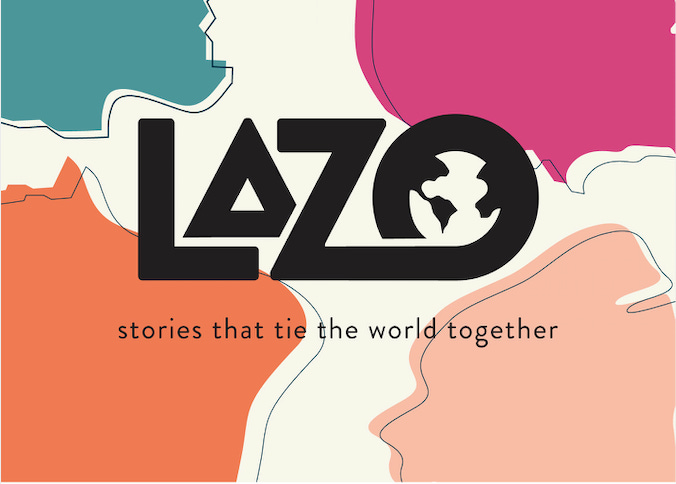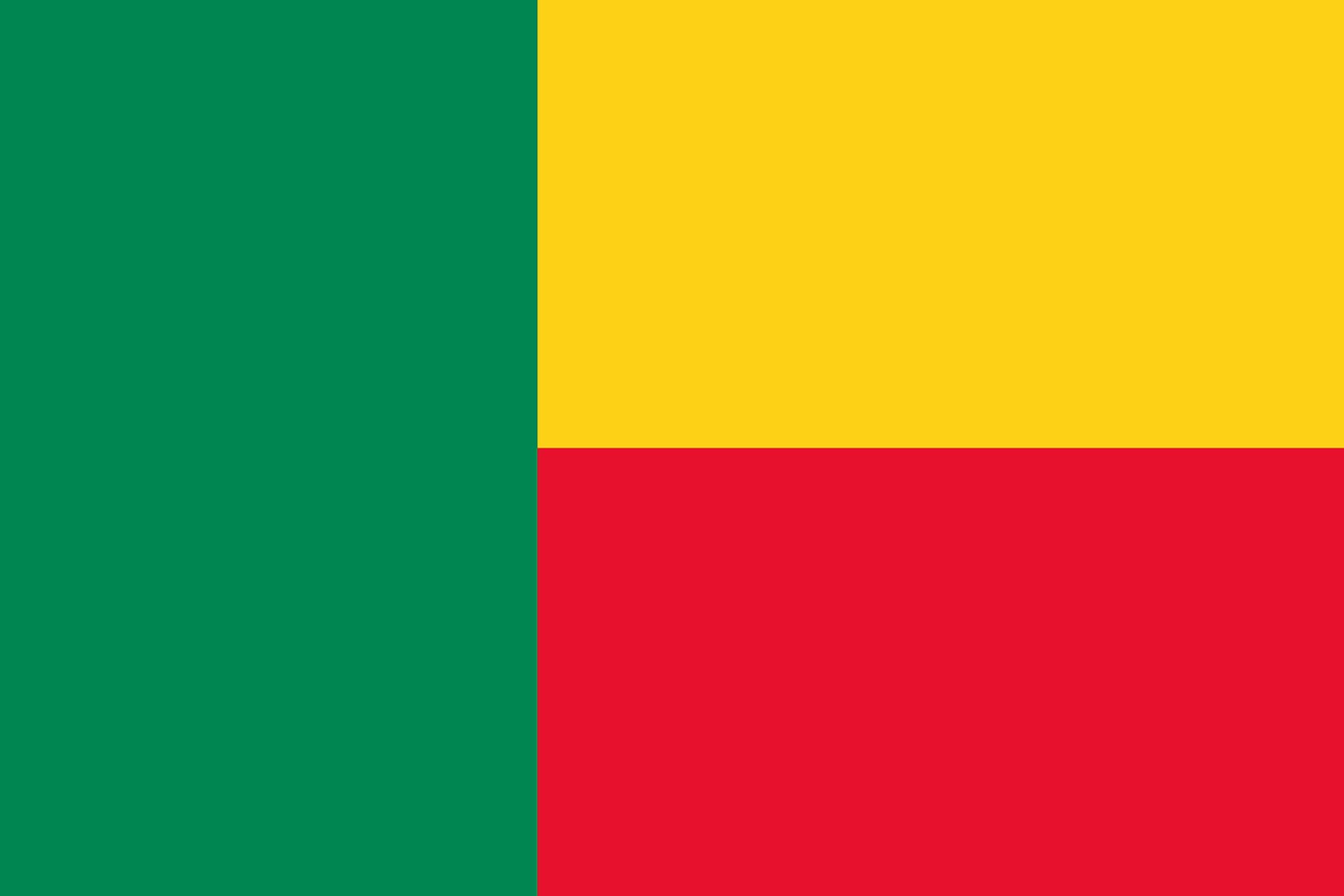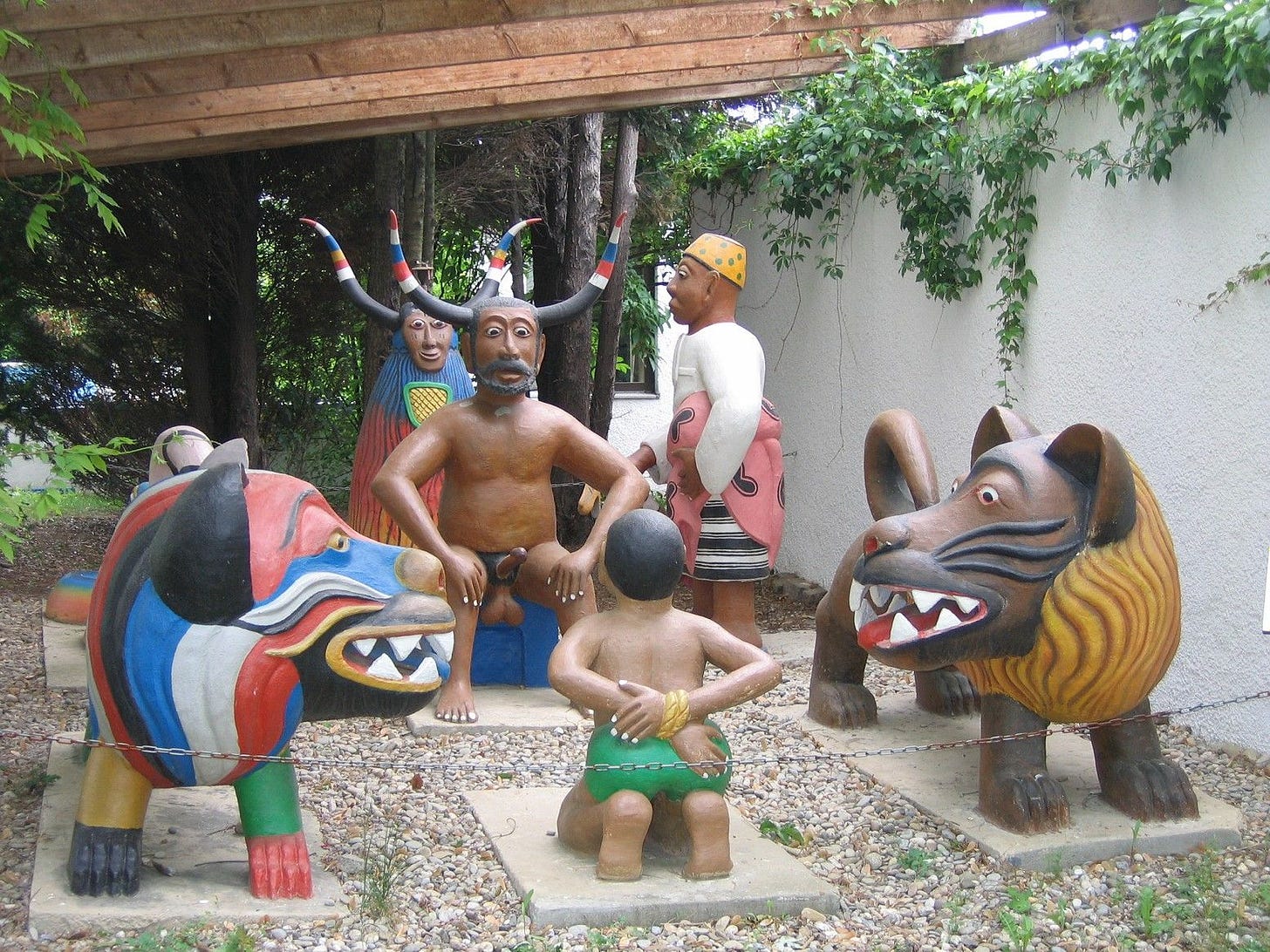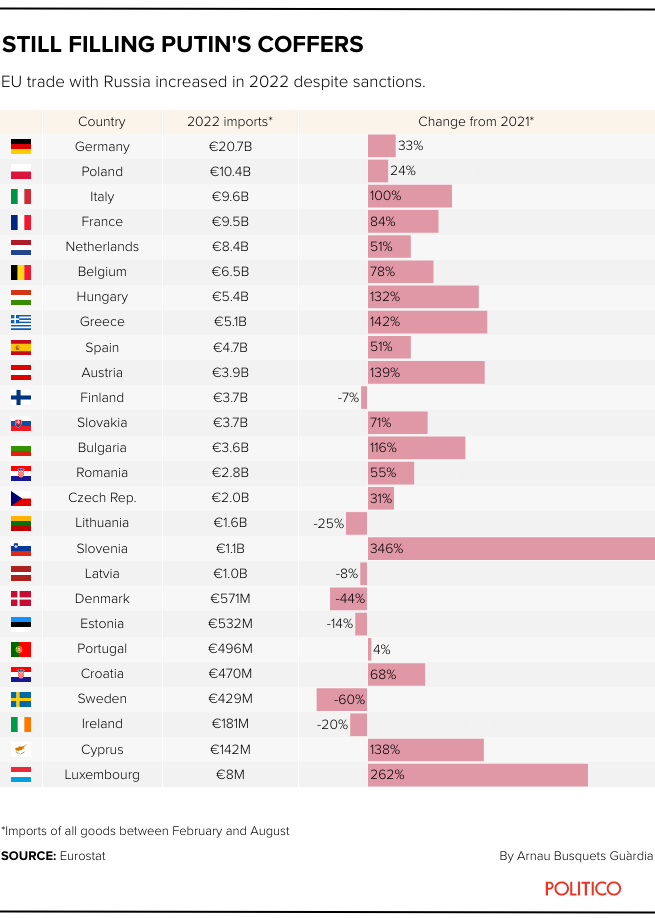#19 Benin
Hi, everyone! I'm so happy to be back here writing this newsletter. I have some exciting things brewing, but more on that next week. If you're enjoying getting this in your inbox and learning about the world each week, please consider sharing a link on social media or with a friend.
This week is about Benin.
Welcome to the 195 series, where I take you on a mini-tour of every country (and maybe some places that want to be countries). Each week I'll feature a new location. Some you may have heard of, while others may be new to you. The point is to learn and nurture our curiosity about the wider world. Maybe you'll find a new artist or musician you like, too.
Here's the link to copy and paste in your browser if you're interested in supporting this project: https://lazo-letters.ghost.io/#/portal/signup. You can sign up for $2 a month or $22 a year.
Country Info:
Population: Roughly 12.5 million.
Current government: Benin transitioned to democracy in 1991 and is now a presidential representative democratic republic. The president is both head of state and head of government. The National Assembly is a unicameral legislative body.
According to the organization Freedom House rates the country as "partially free." They write:
Benin had been among the most stable democracies in sub-Saharan Africa, but President Patrice Talon began using the justice system to attack his political opponents after taking office in 2016, and new electoral rules and a crackdown on his political opponents enabled him to consolidate his power in 2021. Deadly police violence at political protests, arrests of activists, and other restrictions on civil liberties have become increasingly problematic in recent years.
The Council on Foreign Relations wrote something similar in 2021.
Benin has been something of a poster child for African democracy following its move away from Marxism–Leninism after the collapse of the Soviet Union. No longer. On paper, Benin is a constitutional democracy conducted according to the rule of law. But since Patrice Talon was elected in 2016, the president has systematically squeezed the substance out of the democratic and constitutional forms, leaving only a shell.
Languages spoken: The country's official language is French. Fon, Yom, and Yoruba also have the status of national languages. According to Translators Without Borders, the last Benin census indicates that Fon is the most widely spoken as a first language.
Here's a video about the Fon people and their female deity.
Religion: According to the latest census, people in Benin practice a little bit of everything. Around 48.5 percent of the population is Christian, 27.7 percent is Muslim (mostly Sunni), 11.6 percent practice Voodoo, 2.6 percent are members of indigenous religious groups. Around 5.8 percent said they don't have any religious affiliation.
Standout artist: Cyprien Tokoudagba (1939-2012), a painter and sculpture whose work largely focused on the country's Voodoo Pantheon.
Standout film: Because I'm obsessed with alternative spiritual practices, I'm choosing this 2018 documentary on Voodoo in Benin. It's beautifully shot.
A surprising thing: Benin is the birthplace of the spiritual practice known as Voodoo. Some estimates claim that between 40-50% of the population practices it.
Those stats are at odds with the last census, in which under 12 percent of the population identified as practicing Voodoo. But many animistic, pagan, and other indigenous religious and spiritual practices blend with Christianity worldwide. So it wouldn't be unheard of for people to identify as Christians while simultaneously practicing Voodoo.
In Benin, Voodoo Day is a national holiday and there is an annual Voodoo festival.
Story of the week: The Guardian has an article this week on the way mushrooms could lead to economic independence for Benin’s women.
What I'm writing:
• I spoke to people inside Nagorno Karabakh about the blockade of the region by protesters from Azerbaijan. Residents say they are running out of food because the Lachin corridor – their only access to Armenia - has been blockaded for almost a month. One mother told me her toddler could miss her cancer treatment. This story is unlocked and free to read.
Senate Foreign Relations Committee Chair Bob Menendez is calling on the Biden administration to pull back aid to Azerbaijan as hostilities flare up with ethnic Armenians in a disputed border zone in the Caucasus. @CrisLeeMaza reports (unlocked)
https://t.co/q5Jd2TzPtx pic.twitter.com/vvmNvT56ok— National Journal (@nationaljournal) January 4, 2023
What I'm reading:
• Ukrainian forces used HIMARS rockets to kill dozens of Russian troops. The strike killed at least 63 Russian soldiers in the illegally occupied city of Makiivka in eastern Ukraine, the New York Times reports. Other reports suggested that hundreds had been killed.
US official tells @CBSDavidMartin estimated 200-500 Russians killed or wounded in #Ukraine HIMARS strike; explosives were located in same building as troops causing secondary explosions
— Mary Walsh (@CBSWalsh) January 3, 2023
• New York Times reporters spent months in Bucha, Ukraine, collecting evidence to identify the Russian regiment behind some of the worst atrocities of the war. Here is a visual report of what they found.
• The first group of Russian prisoners recruited to fight in Ukraine has been pardoned, the head of Russia’s paramilitary Wagner Group said. The Moscow Times has the story. Newsweek pointed out that Russian readers expressed anger and anxiety over the news in the comment section of a RIA Novosti story.
Deputy Assistant Secretary of Defense Laura Cooper tells reporters that Russia's infamous paramilitary Wagner Group is advancing faster than almost any unit in the Russian military.
— Cristina Maza (@CrisLeeMaza) January 6, 2023
• The Belarusian Ministry of Defense announced that it is increasing its joint military grouping with Russia in Belarus. CNN has the report.
• Russia’s invasion of Ukraine caused the resolution of the Nagorno-Karabakh conflict between Armenia and Azerbaijan to drift away from Russia’s mediation. Russian peacekeepers in the disputed Nagorno-Karabakh region now appear to be in a catch-22 situation, the Moscow Times reports.
• Efforts to get the United Nations Security Council to issue a joint statement on the ongoing blockade of the Armenian population of Nagorno Karabakh failed, setting off a chain of claims and counterclaims about who was responsible, EurasiaNet reports.
• Enforcing sanctions against Russian kleptocrats is harder now that the EU’s top court ruled the public can no longer access data about the real owners of companies, writes Maíra Martini, an expert at Transparency International, in an opinion piece for Politico Europe.
• Pro-Putin operatives in Germany are working to turn Berlin against Ukraine, according to a special report from Reuters.
• Bosnia’s ten-party state-level coalition government lost two member parties only 20 days after it was formed in mid-December, Balkan Insight reports.
• For UnHerd, Tim Judah asks whether Kosovo's war will ever end.
• The hacker collective Anonymous claimed responsibility for a cyberattack on the Serbian defence ministry website, BNE Intellinews reports. The group has repeatedly sent threats to Serbian President Aleksandar Vučić, urging Serbia to stop its actions in Kosovo as tensions between Pristina and Belgrade rise.
• Croatia joined the Schengen Zone – Europe’s free movement zone – and adopted the euro as its currency, Politico Europe reports.
• Bulgaria gained access to Turkey’s terminals and gas transmission network under a long-term deal that will help the country replace energy supplies once provided by Russia, the Associated Press reports.
• Spanish Foreign Minister José Manuel Albares called on the United Kingdom to settle on a post-Brexit deal for Gibraltar, the Guardian reports.
• “Het verhaal van Vlaanderen,” a new TV show that dives into the history of the northern Belgian region of Flanders, has sparked political controversy as the country struggles with its multiple identities. We have an edition all about Belgium.
• The first high-level meeting between Turkish and Syrian officials took place in Moscow and was cordial, but no deals were made, multiple sources told the Middle East Eye.
• Far-right Israeli National Security Minister Itamar Ben-Gvir visited a contested holy site in Jerusalem, sparking outrage, the BBC reports.
• Israel’s new Finance Minister Bezalel Smotrich plans to spend billions of dollars building infrastructure and investing in Jewish settlements in the West Bank, the Wall Street Journal reports.
• The United Kingdom plans to declare Iran’s Revolutionary Guard, known as the IRGC, a terrorist group in the coming weeks, the Telegraph reports. The decision reportedly comes after British intelligence discovered ten plots by the IRGC to kidnap or murder people in the U.K.
• The Taliban signed a deal with a Chinese company to extract oil from northern Afghanistan, CNN reports.
• World Politics Review reports that enforced disappearances fill the pages of Ugandan newspapers, and many victims support the opposition. Few doubt the Ugandan security forces are behind the abductions, but there's uncertainty about what is driving them.
You can write to me for any reason at: c.maza@protonmail.com.








